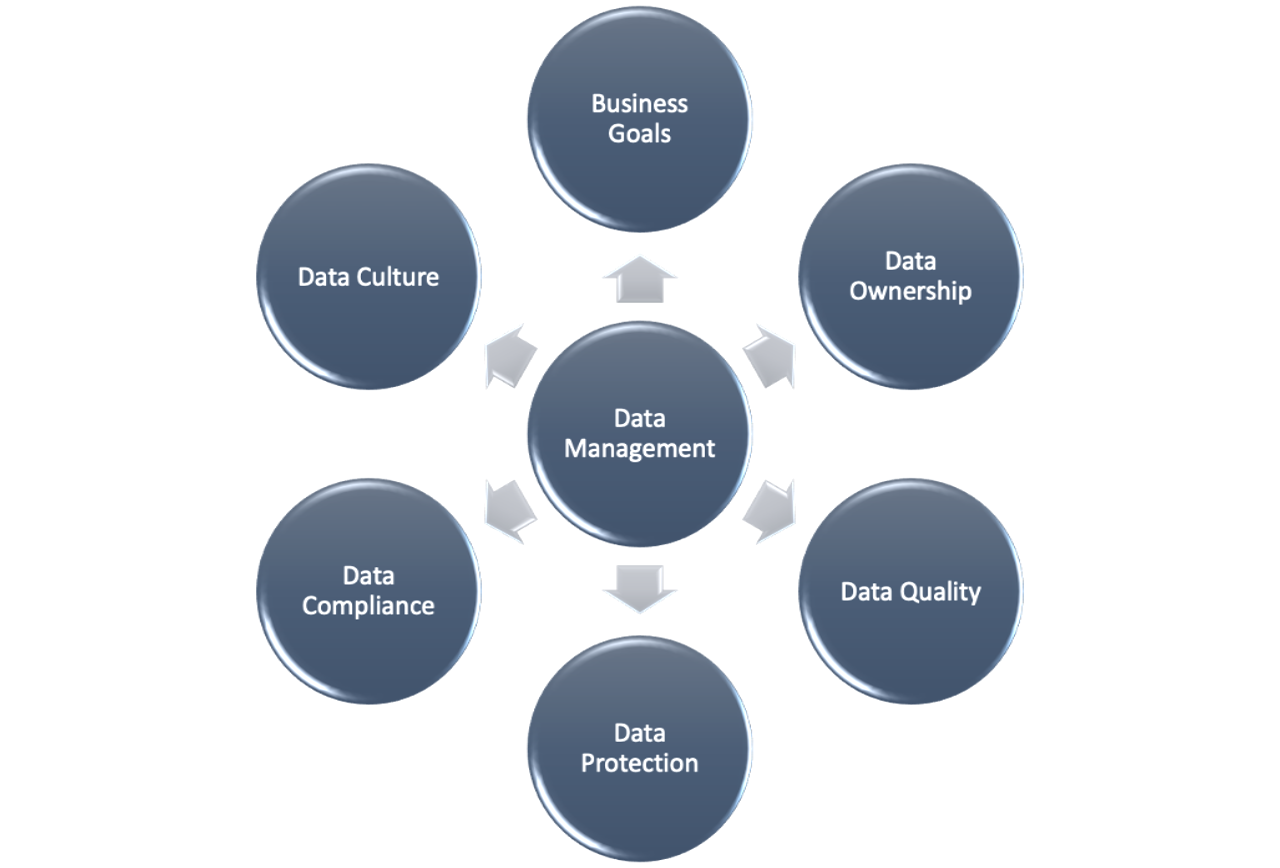Six Best Practices for Data Management
Organizations are trying to become more data-driven, extracting insights from their data to identify new opportunities, improve core processes, enable continuous learning and differentiation, remain competitive, and thrive in an increasingly challenging business environment. But before data can be used effectively, it must be properly managed to ensure that it is accurate, consistent, accessible, secure, and timely.
Here are a few best practices for data management:
Set business goals
To be able to define the appropriate data strategy, and which data to collect and analyze, organizations need to define their business goals, be it gaining customers, reducing costs, or addressing competitive risks. Without the right alignment with business objectives, an organization cannot measure the effectiveness of their data strategy.
Identify data ownership
A large organization has many divisions continuously producing and consuming data and exchanging data with other entities, internal and external. It is important to build a team of domain-specific data managers who will have ownership for the data belonging to their areas of expertise.
Focus on data quality
No technology or tool, however advanced, can be effective without having quality data to work on. Organizations need to ensure that quality information is being delivered, integrity is being maintained, and poor-quality data is being corrected or filtered out.
Prioritize data protection and security
Organizations must ensure only authorized users have access to sensitive or personally identifiable data. Encrypting sensitive data is also critical in preventing data exposure in the case of a breach.
Monitor and implement data compliance requirements
Organizations need to continuously monitor and implement appropriate safeguards to comply with data related government regulations like the GDPR, CCPA, HIPAA and PCI. Without a process in place for such regulatory compliance, organizations may be open to fines, or legal actions.
Commit to an organization-wide data culture
Every person in an organization has a role to play in data management and is responsible in some form for data generation and consumption. People should be trained in the basics of data quality, data security and the impacts of bad data practice on the business.
Making use of data in the right way has become a business imperative for all organizations, large and small. Implementing the right data management practices will go a long way to ensure that the end users are confident in the quality, security, and accessibility of the data.

